College of Arts and Sciences Welcomes Seven New Faculty Members
This fall, the College of Arts and Sciences is proud to welcome seven exceptional new faculty members—scholars whose expertise spans philosophy and psychology, literature and linguistics, economics and environmental science, and the performing arts. From examining climate change’s impact on health disparities, to advancing econometrics and environmental justice, their research reflects the breadth, depth, and global reach of the liberal arts at American University.
“Our new faculty bring extraordinary talent and vision to the College,” says Dean Linda Aldoory. “They will open new doors for our students—through research, mentorship, and creative discovery—while preparing them to thrive as thoughtful, adaptable leaders in a rapidly changing world.”
Read on to learn more about our new College faculty:
Maya Cunningham
Assistant Professor, Performing Arts
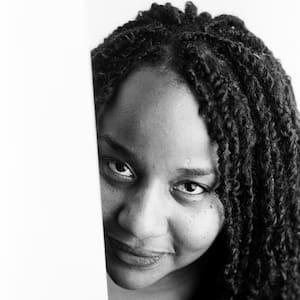 Performing Arts Professor Maya Cunningham is an ethnomusicologist, Africana Studies scholar, jazz vocalist, and cultural activist. Her research focuses on African American cultural identity and traditional African and African American musics. She is an expert in African American music and expressive culture, African American history, African American jazz, South African jazz, and early African American traditional musics. Cunningham works with indigenous African/African Diasporic theoretical frameworks, cultural theories in African American Studies and semiotics, coupled with ethnomusicological research and analysis to explore underrepresented aspects of cultural identity in Black musics.
Performing Arts Professor Maya Cunningham is an ethnomusicologist, Africana Studies scholar, jazz vocalist, and cultural activist. Her research focuses on African American cultural identity and traditional African and African American musics. She is an expert in African American music and expressive culture, African American history, African American jazz, South African jazz, and early African American traditional musics. Cunningham works with indigenous African/African Diasporic theoretical frameworks, cultural theories in African American Studies and semiotics, coupled with ethnomusicological research and analysis to explore underrepresented aspects of cultural identity in Black musics.
Cunningham’s activism includes public impact work like designing ethnomusicology-driven programs based in Black music and other world music traditions. She has a PhD in Africana studies with a concentration in ethnomusicology from the University of Massachusetts, Amherst.
Leigh Johnson
Assistant Professor, Philosophy and Religion
 Professor Leigh Johnson’s career spans nearly two decades in higher education. Her areas of expertise range from moral and political philosophy, to critical race theory and gender theory, to bioethics and emergent technologies. She is committed to fostering intellectual curiosity and social awareness, mentoring students, and innovative projects outside the classroom.
Professor Leigh Johnson’s career spans nearly two decades in higher education. Her areas of expertise range from moral and political philosophy, to critical race theory and gender theory, to bioethics and emergent technologies. She is committed to fostering intellectual curiosity and social awareness, mentoring students, and innovative projects outside the classroom.
Johnson is also an accomplished podcast producer, video editor, and web-content producer with a deep understanding of emergent technologies and their real-world implications. She is the managing editor and producer of the podcast Hotel Bar Sessions. She lends her multifaceted experience to her strong commitment to fostering critical discourse and leveraging philosophical insights in our fast-evolving digital landscape.
Gary Kafer
Assistant Professor, Literature
 Professor Gary Kafer’s fields of research and teaching include digital media, surveillance culture, algorithms and big data, science and technology studies, social media and video games, contemporary art, and theories of race, gender, and sexuality.
Professor Gary Kafer’s fields of research and teaching include digital media, surveillance culture, algorithms and big data, science and technology studies, social media and video games, contemporary art, and theories of race, gender, and sexuality.
His book project After Ubiquity: Digital Media and the Elements of Surveillance interrogates how the concept of “ubiquity” has dominated discourses of surveillance within twenty-first century security culture. He is co-editor of a special issue of Surveillance & Society on “Queer Surveillance.” His research has appeared in the Journal of Cinema and Media Studies, Cultural Studies, Surveillance & Society, American Literature, Contemporaneity, qui parle, Digital Culture & Society, Media Practice & Education, and more.
His research has been supported by the Mellon Foundation and the Franke Institute for the Humanities in Chicago. Previously, he taught at the University of Chicago.
Judy Kim
Assistant Professor, Psychology
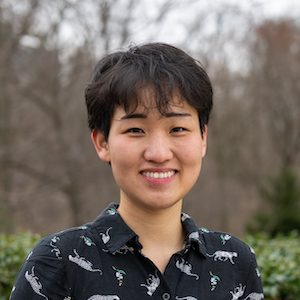 Professor Judy Sein Kim is a cognitive scientist studying the role of communication on belief and concept development. Her work lies at the intersection of psychology, linguistics, and philosophy.
Professor Judy Sein Kim is a cognitive scientist studying the role of communication on belief and concept development. Her work lies at the intersection of psychology, linguistics, and philosophy.
One line of her research examines how people with vastly different experiences (e.g., blind and sighted individuals) come to a shared understanding of the world through linguistic communication. In another line of work, she studies why communication often goes awry (e.g., why people misunderstand, use ambiguous language, or disbelieve someone else’s testimony).
Kim holds a BA in Psychology and Linguistics from Georgetown University and a PhD in Psychology from Johns Hopkins University.
Andrew Martinez
Assistant Professor, Economics
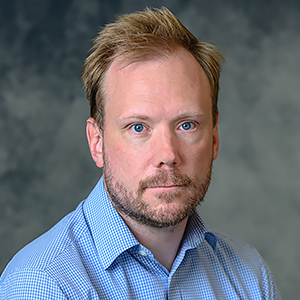 In addition to his new teaching and research position at the College, Professor Andrew Martinez is an affiliate member of the HO Stekler Research Program on Forecasting at the George Washington University and an associate member of Climate Econometrics at Nuffield College at the University of Oxford. His research interests include time series econometrics and forecasting, applied macroeconometrics, and climate econometrics.
In addition to his new teaching and research position at the College, Professor Andrew Martinez is an affiliate member of the HO Stekler Research Program on Forecasting at the George Washington University and an associate member of Climate Econometrics at Nuffield College at the University of Oxford. His research interests include time series econometrics and forecasting, applied macroeconometrics, and climate econometrics.
He has published articles in a range of academic journals including Advances in Econometrics, Annals of Operations Research, Econometrics, Energy Economics, International Journal of Forecasting, Science Advances, and Nature Sustainability.
Gabriella Meltzer
Assistant Professor, Environmental Science
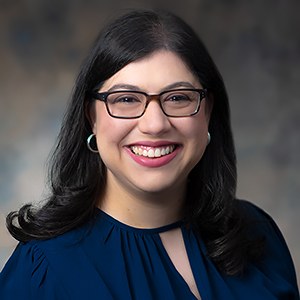 Professor Gabriella Meltzer holds joint appointments in the Departments of Environmental Science and Health Studies. An environmental epidemiologist by training, Meltzer’s research examines how exposures related to climate change and other disasters influence health disparities at critical and sensitive periods of the life course, including pregnancy/in utero, infancy and childhood, adolescence, and older adulthood. She tackles these questions using a variety of quantitative and qualitative methods and approaches her work through the lenses of environmental justice and community engagement.
Professor Gabriella Meltzer holds joint appointments in the Departments of Environmental Science and Health Studies. An environmental epidemiologist by training, Meltzer’s research examines how exposures related to climate change and other disasters influence health disparities at critical and sensitive periods of the life course, including pregnancy/in utero, infancy and childhood, adolescence, and older adulthood. She tackles these questions using a variety of quantitative and qualitative methods and approaches her work through the lenses of environmental justice and community engagement.
At AU, Meltzer directs the Climate Change, Health Inequities, and Life Course Lab (CHILL). She is passionate about teaching and mentoring the next generation of environmental health researchers and advocates.
Andressa Monteiro Venturini
Assistant Professor, Environmental Science
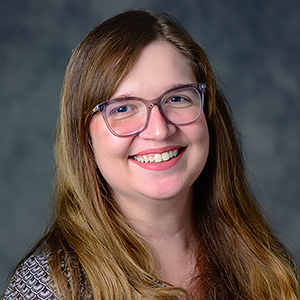 Using molecular and bioinformatics methods, Professor Andressa Monteiro Venturini works to understand how land-use change impacts soil microbial communities and their ecosystem services. Born in Brazil, she has a deep passion for working with tropical environments, particularly the Amazon. Her research focuses on microbial roles in greenhouse gas cycling, the interplay between soil and human health, and microbial potential for microplastic degradation.
Using molecular and bioinformatics methods, Professor Andressa Monteiro Venturini works to understand how land-use change impacts soil microbial communities and their ecosystem services. Born in Brazil, she has a deep passion for working with tropical environments, particularly the Amazon. Her research focuses on microbial roles in greenhouse gas cycling, the interplay between soil and human health, and microbial potential for microplastic degradation.
Monteiro Venturini completed her undergraduate and graduate studies at the University of São Paulo in Brazil. Following this, she joined Princeton University as a Fung Global Fellow Postdoctoral Research Associate and continued her postdoctoral work at Stanford University.